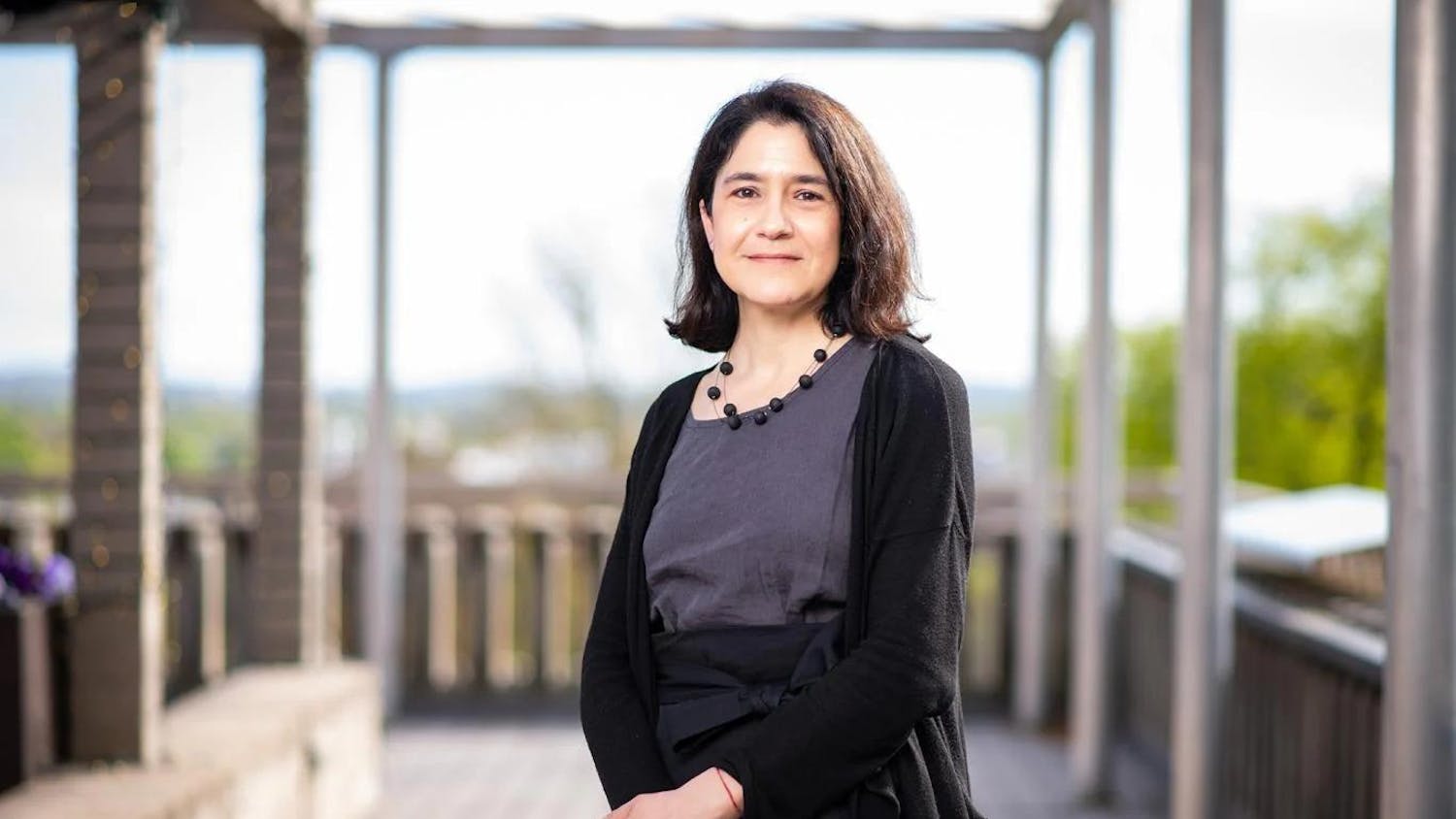Linguistics, the study of languages and their structure, aims to bridge the gap in understanding among the diverse array of languages spoken around the globe. Priding itself on its diverse student body and emphasis on an internationally focused curriculum, Tufts is wrapping up its first year of offering a linguistics minor in the School of Arts and Sciences with an eye to advancing the awareness of language.
Calvin Gidney, an associate professor in the child development department and a faculty member for the linguistics minor, said the program grew out of the fact that linguistics was glaringly missing within the Tufts curriculum. In fact, Gidney, who has a Ph.D. in linguistics and has been at Tufts for 15 years, explained that he was hired partly because the staff needed to address the lack of a linguistics program.
Gidney explained that students in several of his language−development courses did not understand any of the theoretical underpinnings of linguistics that he frequently brought up in class, due to a lack of any previous linguistics courses students could take, and was forced to teach mini−lessons to bring them up to speed.
"I had to do a little double duty with that course," Gidney said.
Yet while the students lacked previous knowledge about linguistics, they were not equally lacking in enthusiasm. All they needed, he said, was willing faculty to fill the gap.
The aspiration to establish a minor was able to become a reality thanks to the expertise of Ray Jackendoff, the Seth Merrin professor of philosophy and current co−director of both the Center for Cognitive Studies and the linguistics minor. Jackendoff came to Tufts six years ago.
"[Ray Jackendoff's] hire was really important because in the field of linguistics, he's very well known," Gidney said.
Ariel Goldberg, assistant professor of psychology and co−director of the linguistics minor, agreed, calling Jackendoff and Professor of Psychology Phillip Holcomb the "primary movers and shakers" behind the minor.
With the necessary faculty in place and the interest of the students already there, the linguistics program could finally start to come together. The minor already had a head−start, Goldberg said, because many of the classes necessary to implement the minor were already offered.
"We have a lot of courses being taught on language in disparate departments," he said. The linguistics minor, he added, simply offered a way of uniting them in a meaningful way.
Currently, the linguistics minor consists of taking six courses and either six semesters of one foreign language or three semesters of two foreign languages. Among the required courses are Introduction to Linguistics and two courses that focus either on phonology (the study of sounds in a language), syntax (the study of how words are structured in language) or semantics (the study of meaning in language). The remaining three courses can be chosen among a list of 17 offered in departments such as philosophy, child development and psychology.
In Goldberg's opinion, Tufts is uniquely suited to offer this minor because of the school's strong language offerings, as well as its diverse array of both course offerings and faculty.
"We have the theoretical core, but we have the researchers who are really working to apply this core to different domains," he said. "This integration is something that's very important at Tufts."
Jackendoff agreed that creating the program was simply a matter of unifying resources that were already present.
"What can we do with the pieces that are around to create a coherent linguistics program?" Jackendoff said of the thinking process behind developing the minor.
With the pieces now in place, long−term growth of the program is something to which the linguistics faculty can look forward, Goldberg said.
"I think a goal is to eventually have a linguistics major," he said. Currently, the fate of any linguistics program at Tufts is intrinsically tied to the development of the graduate program in cognitive sciences, a field to which linguistics has very close ties.
"We are in the process of creating a joint Ph.D. program in cognitive science," Goldberg said. "[That process is] really creating an ecosystem for cognition and language in particular."
In order for the program to grow, Goldberg said, the university needs to continue to unify resources from disparate departments.
"I think the way to build [the program] is to make sure that students are receiving an integrated experience," he said. Adding courses in advanced topics, offering a capstone experience and — though the state of the economy may make it impractical at this time — the acquisition of a new faculty member would all be instrumental steps in allowing the program to offer a major, he said.
"We will eventually need to have another faculty member here to make it a meaningful training experience," he said.
Gidney sees linguistics as a vital field of study rooted in many different areas, which may justify the expansion of the program. Within linguistics, he explained, it is possible to study fields from speech language pathology to sociolinguistics — the study of language in society.
"Linguistics has an ‘s' for a reason," he said. "It's all the different ways we can study language."
Further study in linguistics, Goldberg said, could eventually help brain−damage victims recover, better written−language acquisition in children and even better the way humans use computers.
"We could perhaps have computers interact with us on a linguistic level," he said.
Jackendoff sees the field as uniquely branching into many of Tufts' departments.
"I think it's the only field in the university that can legitimately be part of the arts and humanities, social sciences and natural sciences," he said.
It is this integration and the field's diverse applications that students at Tufts will benefit the most from in the end, Gidney said.
"I think what this [program] allows is for students to tailor their linguistic experience," he said. "Our minor is a gateway to further things."





